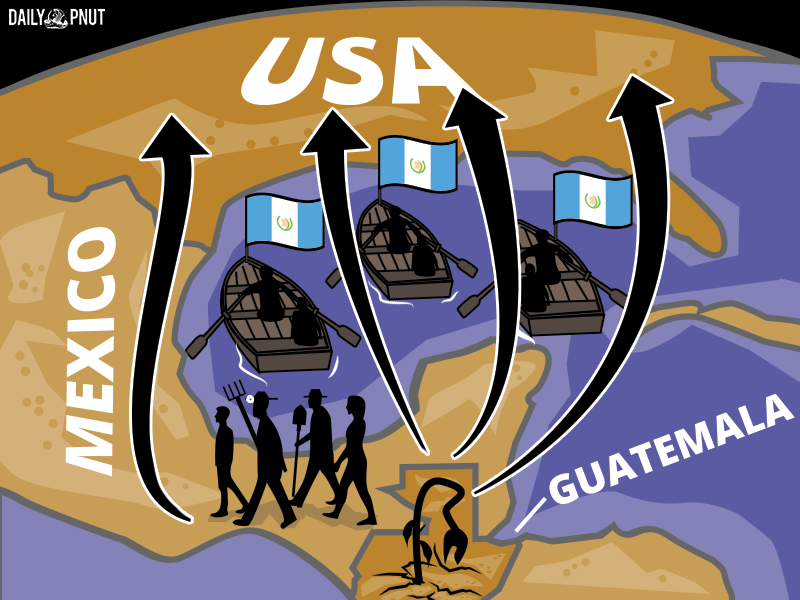What You Are Perceiving
July 30, 2019

“Everything that irritates us about others can lead us to an understanding of ourselves.” – Carl Jung
“The more I see, the less I know for sure.” – John Lennon

Relationship Based Hiring Over Merit Based Hiring
The president announced Sunday that National Security Adviser Dan Coats would leave the administration next month. Trump’s nominee to replace Coats is John Ratcliffe, a two-term Republican congressman from Texas whose only remote qualification for the job is his six-month service on the House Intelligence Committee.
The Office of Director of National Intelligence was created shortly after the September 11, 2001 terrorist attacks; it was to be an overarching entity that would coordinate the work of America’s 16 discordant intelligence agencies. The order creating the office specified that directors should have military or intelligence experience, and the first four did. Coats did not, aside from a stint on the Senate Intelligence Committee, but he had developed expertise on military issues as a long-serving former member of Congress. He was well known to many lawmakers, who confirmed him in 2017 by a vote of 85 to 12.
Contrastingly, Ratcliffe has simply been a hangdog defender of the president during the various inquiries into Trump’s collusion with Russia. In last week’s Mueller hearing, Ratcliffe grilled the former special counsel on his legal theories, and asserted that the real colluders were Hillary Clinton and the Democrats. Ratcliffe claimed that the Steele dossier — which he incorrectly said had triggered the Mueller probe — was filled with misinformation planted by Russians who were aiming to thwart Trump’s bid for the White House. The performance thrilled the president.
Republican senators have remained noncommittal, although even the ultra-Trump-supporting majority leader has implied that Ratcliffe is too much of a loyalist to give the president vital, factual, candid advice.
From The Itchiest Place On Earth To The Happiest Place On Earth
- Nothing has had more impact on human history than — surprisingly — mosquitoes, or rather the diseases they carry. Mosquitoes are the deadliest hunter of human beings on the planet, and every year some 700,000 people die from mosquito-borne diseases like malaria, Zika, West Nile, dengue and yellow fever.
- Researchers suggest mosquitoes may have killed nearly half of the 108 billion humans who have ever lived throughout our 200,000 year or more existence. The gene-altering innovation Crispr has been used to design mosquitoes that produce infertile offspring. Releasing those mosquitoes into the wild could mean the extinction of the species.
- Considering the availability of such means to remake the biosphere, the director of the Center for Law and the Biosciences at Stanford University thinks the real question is: “How should we feel about that? Do we want to live in nature or in Disneyland.” (NYT)
- Meanwhile, A drug-resistant strain of malaria is making the disease ‘almost untreatable’ in southeast Asia (WaPo, $)

Bouteflika Safely Flew The Coup
- Oil-rich Algeria, Libya’s neighbor, is Africa’s largest country. It is strategically located on the rim of the Mediterranean Sea, gateway to the Sahara. On paper Algeria is a constitutional presidential republic, with a president as head of state and a prime minister as head of government.
- But for the past two decades the country has been run like an autocracy, that is until peaceful protesters managed to oust President Abdelaziz Bouteflika five months ago in a bloodless revolution. A former government minister, who heads one of the numerous citizen groups that have sprung up since the uprising began, described what this means to the citizenry: “What we’ve lived in five months, the Arab world hasn’t seen in 40 years. We’ve removed a president without exiling him [as in Tunisia]….”Without imprisoning him [as in Egypt]….And without killing him [as in Libya]….And nobody has been killed. There’s nothing similar in the Arab world.” (NYT)
The Climate Is Less Greenhouse On The Other Side Of The Border
- Neither border wall nor inhumane detention will deter an influx of families from Central America, because to them, it’s either migration or starvation. Certainly the region remains one of the world’s most dangerous outside a warzone.
- Violence, poverty and corruption have forced millions to flee their homes and head north in search of security. But the deepening climate crisis has added drought and famine to the toxic mix, meaning farmers in Central America’s dry corridor — a strip of tropical dry forest stretching south from Mexico through Guatemala, Honduras, El Salvador and Nicaragua — have little choice but to leave, or stay and starve to death. (Guardian)
Additional World News
- Ethiopia plants 350m trees in a day to help tackle climate crisis: National ‘green legacy’ initiative aims to reduce environmental degradation (Guardian)
- The Deadly Winters That Have Transformed Life For Herders In Mongolia (NPR)
- Johnson refuses to meet EU leaders unless they scrap backstop: Some supporters had hoped PM would tour capitals explaining alternatives to Brexit withdrawal agreement (Guardian)
- Fears of Navalny Poisoning Are Rooted in Previous Attacks on Kremlin Foes: Over his doctor’s objection, the hospital treating the Russian opposition leader Aleksei Navalny sent him back to jail without identifying the cause of his illness. (NYT, $)
- Who Will Be Puerto Rico’s Next Governor? (NPR)

Another One Bites The Dust
- Director of National Security Dan Coats, arguably the last of the adults in President Trump’s original national security room, has been booted from his top intelligence job and will leave the administration on August 15.
- A former Republican senator from Indiana, Coats, 76, took a low key approach and operated mostly behind the scenes. But that didn’t prevent him from getting drawn into recurring clashes between Trump and the intelligence community. When called upon to make public statements, Coats dared to set the facts straight even when it meant contradicting a presidential pronouncement.
- If Trump was asked about his intelligence officers making contradictory statements, he’d respond: “They said they were totally misquoted. It was taken out of context…. They said it was fake news.” (NPR)
Private Catfish, Public Shame
- Some very nice, very patriotic people have fallen victim to a dishonorable Facebook scam.
- A married 56-year-old woman became FB friends with someone she thought was a soldier in Iraq. Over time she sent him care packages and thousands of dollars in gift cards, and even wired him $5,000 for plane tickets to return home. It was most of her family’s savings. Then after driving two hours from Delaware to pick “her” soldier up at Philadelphia International Airport, she discovered his “flight” didn’t exist.
- Both she and the real soldier, whose online identity and photos were stolen, had become entwined in a global fraud that neither the social network nor the US military have been able to stop. (NYT)
- Things to Know About Military Romance Scams on Facebook: Here’s how victims are hooked, and what Facebook and the United States military say they can (and cannot) do about it. (NYT $)
Additional USA News
- Gilroy Garlic Festival Shooting: Boy, 6, And Girl, 13, Among The Victims In California (NPR)
- Why Joe Biden’s Age Worries Some Democratic Allies and Voters (NYT, $)
- How Pete Buttigieg went from war protester to ‘packing my bags for Afghanistan’: Months before he launched his first political campaign. he joined the Navy Reserve, adding a valuable credential to his résumé: Veteran. (WaPo, $)

Ahhhhhhhhhhhhhhhhhhh…Refreshing…
The next time you reach for a can of soda, think of this: recent independent reports — not sponsored by companies involved in the sugar/sweetener industry — are linking regular consumption of sugary drinks to risks not only of tooth decay, obesity, fatty liver disease and Type 2 diabetes, but also heart disease and premature death. Enjoy. (NYT)
Why Did You Do That? What Were You Perceiving?
- Ever wonder how a normally smart person could make a really stupid decision? Maybe ask yourself “What on earth could she/he have been thinking?” A physician who has studied how perception alters behavior believes that, to understand what compels a person to make a truly foolish decision, the question should be: “What were they perceiving?”
- He came to this conclusion several years ago when he and his neurologist colleague took a deep dive into the scientific literature and discovered that, under the right circumstances, a subconscious neurobiological sequence in our brains causes us to perceive the world around us in ways that contradict objective reality, distorting what we see and hear. It’s a powerful shift in perception, which the two doctors named a “brainshift.” It’s unrelated to intelligence, morals or past behaviors — we don’t even know it’s happening, and we can’t control it. (Vox)
LAST MORSELS
“Because one believes in oneself, one doesn’t try to convince others. Because one is content with oneself, one doesn’t need others’ approval. Because one accepts oneself, the whole world accepts him or her.” – Lao Tzu
